The Girls Guide to Homelessness
The Girls Guide to Homelessness
a memoir
Brianna Karp
To Brandon, Sonia, Vicki and Sage
homeless (h ml
ml s)
s)
adj. Having no home or haven.
n. (used with a pl. verb) People without homes considered as a group. Often used with the.
11302. General definition of homeless individual:
an individual who lacks a fixed, regular, and adequate nighttime residence; and
an individual who has a primary nighttime residence that is a supervised publicly or privately operated shelter designed to provide temporary living accommodations (including welfare hotels, congregate shelters, and transitional housing for the mentally ill);
an institution that provides a temporary residence for individuals intended to be institutionalized; or a public or private place not designed for, or ordinarily used as, a regular sleeping accommodation for human beings.
Federal Definition of Homeless, United States Code Title 42, Chapter 119, Subchapter I
Contents
Prologue
T he Walmart lot was cold in the night air, even for southern California. I hadnt brought enough blankets and would need to swing by the thrift store and pick up a few more. Everything was well-lit by the streetlamps and eerily quiet. There were maybe a dozen other trailers around when I arrived, but no sign that actual people might live in them at all. I had once visited Calico Ghost Town, an old abandoned mining settlement in the hills outside San Bernardino, and this had that same sense of deathly desertion. I knew they were there, perhaps even peeking out their windows at the newcomer, but I couldnt see or hear any of them.
Were any of the others like me? Were the rest of them just passing through? Was I the only one idiotic enough to think I could pull off a stunt like this?
Irrational fear swept through me. How could I sleep? I was more weary than Id been in a long time, but I flicked on a solitary flashlight and tried to read a book, although you couldnt exactly call it reading. It was more like staring blankly at the page, eyes racing over the words without comprehension as my mind created scenarios one after the other, each more horrible than the last. What if I awoke to the brisk tapping of police batons on my windows? What if they knew I was planning on staying here longer than a night or two? What if they could sense it? What if I awoke at a tilt, all my boxes hurtling from one end of the trailer toward my head, as a tow truck dragged me away, screeching for help, muffled and buried under hundreds of books?
I had never much thought about homelessness or homeless people. Sure, there was the occasional hobo on the street, perhaps lounging on the sidewalk outside a 7-Eleven, begging for change, ragged, perhaps with a worn ski cap on, maybe missing a few teeth, with scraggly hair and a wizened visage.
Dont make eye contact with them, my mother would say, jerking me to her side, not even bothering to whisper or even lower her voice. She spoke about them as if they couldnt hear or understand her, or as if they had no feelings to hurt. I never really thought to question that. It was just another stereotype repeated to me, ad nauseam, from infancy.
Theyre just lazy bums. Too lazy to get a job. Dont look at them, dont talk to them and dont give them anything. Half of them arent even really homeless, you know. Theyre just faking it to make money without actually having to do anything.
I had never thought about how those homeless people ended up there. I had never once thought to ask, Why would a lazy person choose that life? It seems like a really hard, scary, uncertain life. It seems like the last kind of life a lazy jackass would choose.
I was ashamed of myself, thinking back on it. In a way, this was my atonement, my penance for being so self-righteous all those years. Serves me right, I realized wildly.
It was Thursday, February 26, 2009. I was homeless.
But then, its not really enough to tell you that Im homeless, is it? You want to know who the hell I am and how I got here.
Chapter One
I m trying to decide whether its fair or not to say that insanity runs in my blood.
Certainly its a statement with which many of my family members would, shall we say, take umbrage. But I dont know that its much of a stretch, from an outsiders perspective. Im not talking about the kooky, madcap, adorably dysfunctional brand of crazy, either. The Moonstruck -style family with their over-the-top yelling and gesticulating, followed by reconciliations and hugs and kisses and banquet-reunion meals. The bighearted kind of crazy.
Thats not my family. My lineage runs more along the batshit-fucking-nuts crazy train.
As you might imagine, this is enough to give a girl a massive mind trip. Theres always that underlying paranoiawondering whether I have miraculously broken the mold and escaped the curse, or whether the insanity is buried and brewing just below the surface, lying dormant and awaiting the inevitable breakout.
I was born a fourth-generation Jehovahs Witness. There wasnt much choice in the matter. On my mothers side, the JW heritage goes all the way back to my great-grandparents Polish immigrants to Canada who met on a bus one day in the early 1900s, discovered they each thought the other looked pretty spicy and married a week later. Mary and TaTa Mazur would later convert to the Bible Students, renamed Jehovahs Witnesses in 1931, and pump out nine devout Jehovahs Witness children up through the Great Depression, one of whom was my grandmother, Iris, the youngest and the black sheep and hell-raiser of the family.
The Mazur clan would later tell stories of their persecution as Jehovahs Witnesses during both world wars, including the ban on the religion in Canada from 1940 to 1943, when members organized an underground resistance. My grandmother would affectionately relate stories of her fathers imprisonment when he was caught distributing JW pamphlets, only to find himself the first known believer to be thrown out of jail for singing religious hymns in Polish at the top of his lungs (and horrendously out of tune), distressing prison guards and inmates alike.
I know, I know, it all sounds very charming and warms-the-cockles-of-your-heart so far, doesnt it? Believe me, there are plenty more stories where those came from. JWs thrive on the martyr complex, since they believe that the Bible prophesied that members of the One True Religion would be greatly persecuted. Therefore, Ive heard every variation of the chuckle-worthy tale in which oppressed Jehovahs Witnesses pull one over on their tormentors.
But.
My great-grandparents also claimed to be of the anointed. In JW-speak, this means that they believed Jehovah God had spoken to them and revealed that they were among the elite 144,000 chosen ones, selected to go to heaven and reign alongside Him as kings once He brought about a prophesied New Order of Things. This new order, Jehovahs Witnesses believe, involves the brutal destruction of every nonbeliever at a bloody, apocalyptic Armageddon showdown, and the subsequent building of a Paradise Earth populated solely byyou guessed itthe rest of the Jehovahs Witnesses, the ones not chosen to reign as kings in heaven. They dont tell you this stuff on your doorstep, do they?
So. Two ancestors hearing voices and with delusions of kingly grandeur. Check.
My grandmother, Iris, despite a few young years of running wild, raising Cain and living something of a double life few Witnesses would have approved of, remains in the religion to this day. She attends a Kingdom Hall (JWs dont call them churches; they consider churches pagan and of false religion) in California, where she moved and settled down with my grandfather, Jeremiah. They are now divorced, but he is also a Jehovahs Witness and lives a relatively sweet, unassuming life under the radar in Alabama with his second wife.

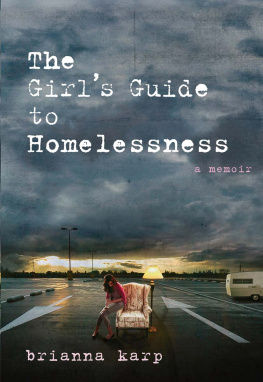


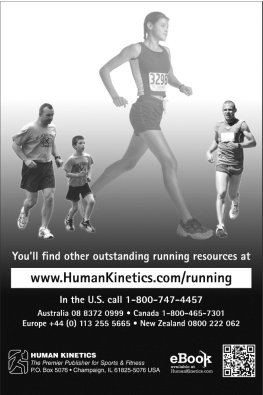


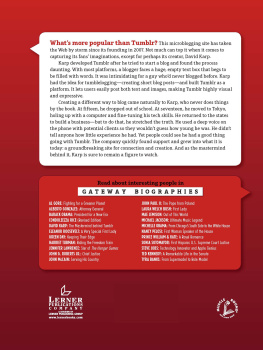




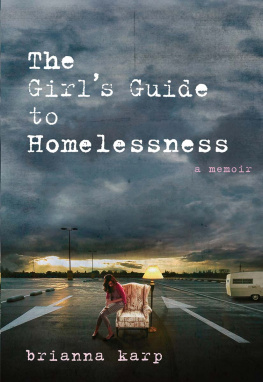
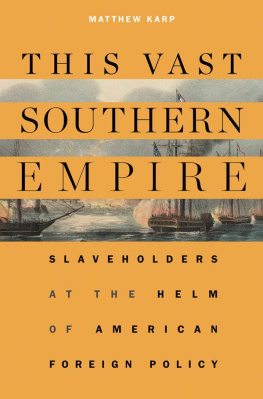



 ml
ml s)
s)